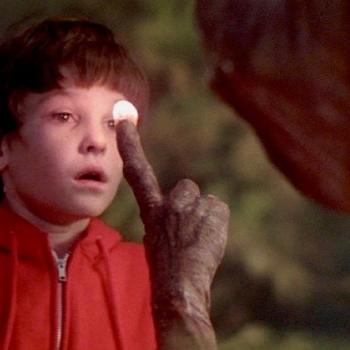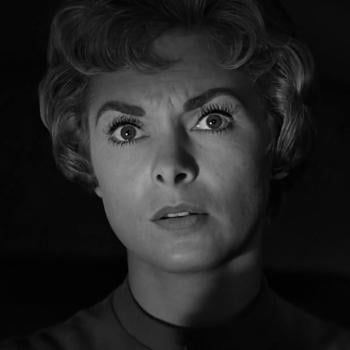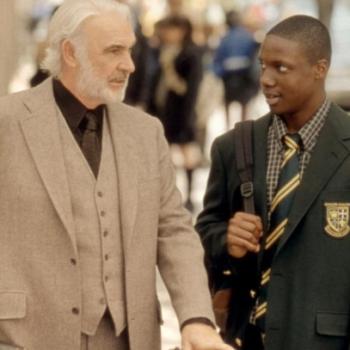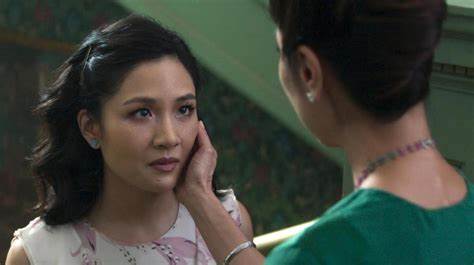
Lately I’ve been very invested in the works of director Jon M. Chu. He was the man behind the camera for In the Heights, my favorite movie of 2021, and he’s also helming the upcoming Wicked movies for Universal. While I know Crazy Rich Asians wasn’t his first film (or even his first Hollywood film), it was the movie that brought him to my attention as a filmmaker.
This romantic-comedy follows Rachel Chu, a Chinse-American professor dating the dashing and soft-hearted Nick Young. When Nick invites Rachel to meet his family at a friend’s wedding in Singapore, Rachel learns that her boyfriend comes from a family of abundant wealth. “They’re not just rich,” Awkwafina’s character tells Rachel, “they’re crazy rich.” Though Rachel is fairly understanding of Nick’s coyness around the subject, she quickly finds herself at odds with her boyfriend’s social network and wondering if she really has a future with Nick after all.
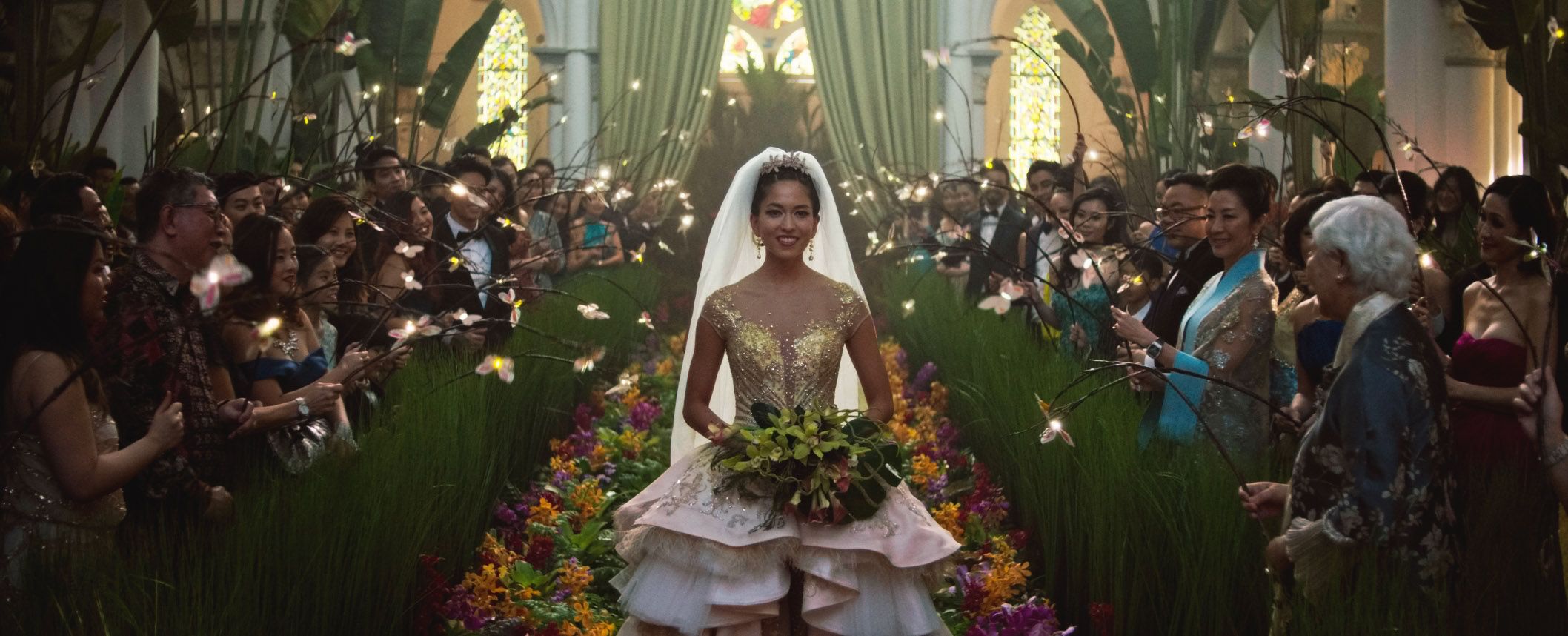
Beyond the film’s cultural advancements (the film was advertised as the first Hollywood offering with an Asian lead and an almost universal Asian cast in 25 years), perhaps this film’s biggest unique asset to the rom-com genre is its overwhelming opulence. The production design is rich and ornate (whatever church I end up hosting my future wedding in, I am absolutely going to inquire about flooding the flower-strewn aisles), and this becomes another variable in the equation of Rachel figuring out where she fits into the world of her boyfriend. As Rachel’s own relationship to her own self-worth gives and takes throughout the film, this luxurious landscape likewise vacillates between feeling gaudy and imposing, or shimmering and paradisical. The judgment Rachel endures comes on two major fronts.
First, her social station. Nick’s social circle looks down on her–and even feels threatened by her–because she does not hail from extravagance and wealth. This is somewhat ironic since Rachel herself seems to be doing just fine. She’s acing the American dream of rising from virtually nothing and becoming “NYU’s youngest faculty member,” but against these titans of industry and fashion, Rachel is still made to feel small. There is a lesson there in how the world wants us to measure worth and success and why it’s both demeaning and hollow. No matter how high you climb on the ladder, there will always be someone “higher” than you, looking down on you and wondering why you aren’t as successful as they are.
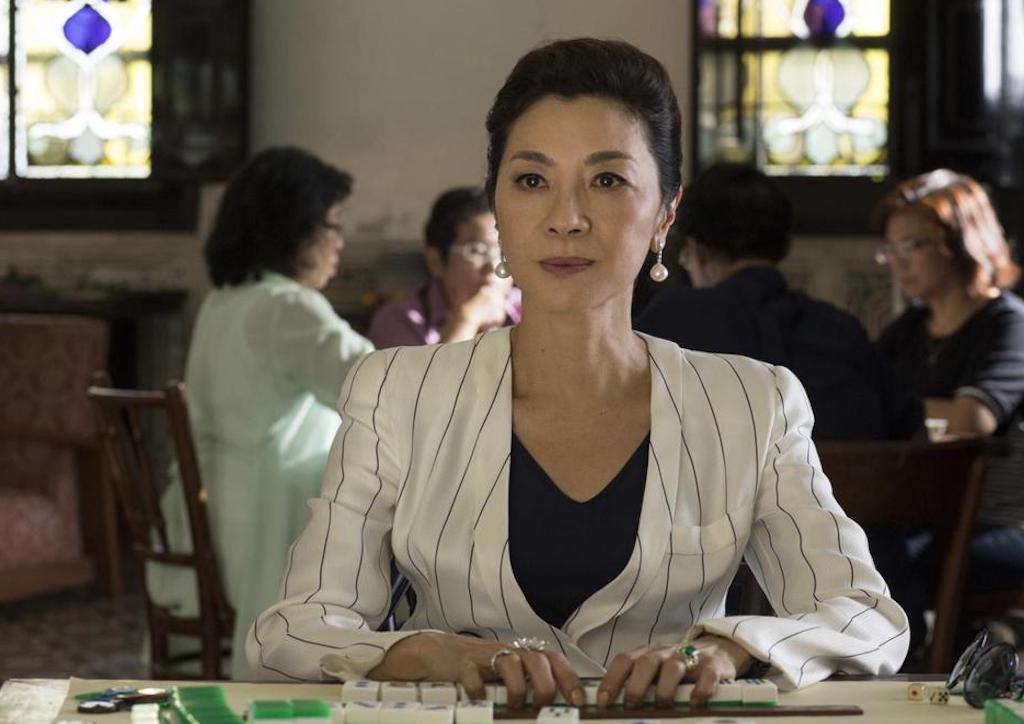
Second, her socio-cultural distance that she as an American-born woman presumably has from her Asian heritage. This resistance comes most pointedly from Nick’s mother, Eleanor, who doubts that an American girl like Rachel, could ever understand the sacrifice it takes to sustain a family. “All Americans think about is their own happiness,” she says. “We know how to build things that last.” This puts Rachel in an unfair position of having to prove her own cultural legitimacy. It’s telling also that when Eleanor unearths the truth about Rachel’s parentage, she doesn’t see the struggle of Rachel’s mother as a testament to the sacrifice and resilience that she exhibited to give her daughter the best life she could. Instead, she merely takes it as a token that Rachel is damaged goods.
In the end, Rachel is willing to walk away from Nick, not because she doesn’t feel worthy of him, but because she recognizes Nick has been put in an impossible situation, and her peaceful exit is the only way to give him the best future in these circumstances. By ending their relationship, she is leaving the door open for Nick to find lasting love that won’t take him away from his family. This selfless action humbles Eleanor, who finally gives Nick her blessing to be with Rachel.
A part of what makes Rachel’s victory so meaningful is that she chooses not to make this a zero-sum game between her and Eleanor. Rachel “wins” because she recognizes the worth relationship between Nick and Eleanor, and this insight itself reveals a certain security she has found in her own sense of identity. And that’s the secret: worth isn’t a competition. It isn’t even something one has to prove. It is inherent in each of us.






